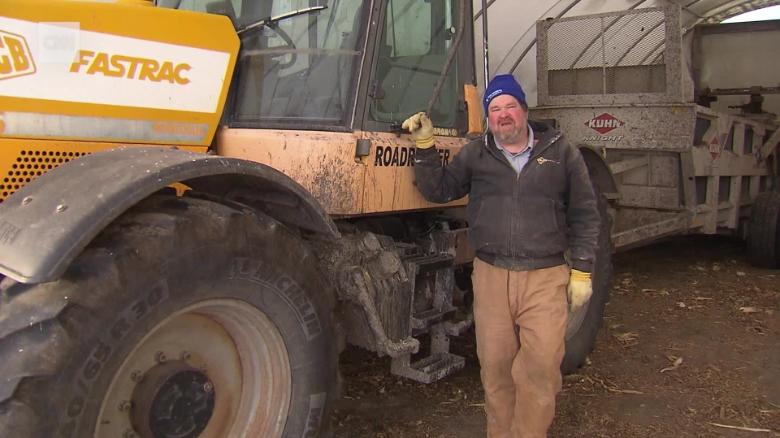Washington (CNN)US farm bankruptcies were up 20% in 2019, despite the billions of dollars in aid President Donald Trump has paid to farmers hurt by the trade war with China.
That's the highest level since 2011, following the Great Recession, according to court data analyzed by the American Farm Bureau.
There were 595 Chapter 12 family farm bankruptcies, nearly 100 more than in 2018, the trade group said.
Trump's trade wars created a lot of uncertainty about markets. Negotiations with Canada and Mexico -- two of US farmers' biggest export markets -- over the rewrite of the North American Free Trade Agreement went on for more than two years. China retaliated to Trump's tariffs with duties on a range of American farm goods. As a result, exports of soybeans to China nearly stopped for about a year. Prices plunged and a record number of soybeans to piled up in storage.
To make up for some of those losses, and shore up political support, Trump has allocated a $28 billion aid package for farmers over the past two years. Most of that money was paid to farmers directly, and about $4 billion was used to purchase surplus food for food banks and given to groups that promote agricultural aid.
The aid payments boosted farm income, which was projected to be up 10% in 2019. It would have shrunk without the subsidies.
But many farmers say they would rather have strong trade than aid payments, but the money has helped fill in the gap during a rough two years. Aside from the trade wars, last year's wet weather made planting season tough. And many American farmers have for years been facing low prices for their commodities, including dairy, corn and soybeans.
Wisconsin, long known as America's Dairyland, saw the most bankruptcy filings last year. Not every closing farm files for bankruptcy, suggesting that the number of farms going out of business could be even higher.
"This loss of farms and this number of farm bankruptcies is deeply disturbing, and completely predictable," said Kara O'Connor, government relations director at the Wisconsin Farmers Union. She blamed overproduction, farm policy, and low prices.
"The trade wars were salt in an existing wound," she said, adding that new trade deals aren't going to save them.
Yet many farmers are optimistic about future economic conditions, according to a Purdue University/CME Group Ag Economy Barometer survey in December. Congress recently passed the US-Mexico-Canada Trade Agreement, which ensures that most agricultural products will remain tariff-free when traded within the region.
The preliminary, phase one deal with China reached earlier this month has also restored some certainty for farmers. It suggests trade tensions have softened for now, and Beijing promised to step up its purchases of American agricultural products, pledging to buy about $32 billion more than it did before the trade war began.
But analysts are skeptical those numbers can be met, especially while China keeps tariffs on US commodities in place. Even if Beijing keeps its promise, the purchases might still not make up for the losses. Agriculture exports to China fell by about $21 billion in 2018 alone.



















